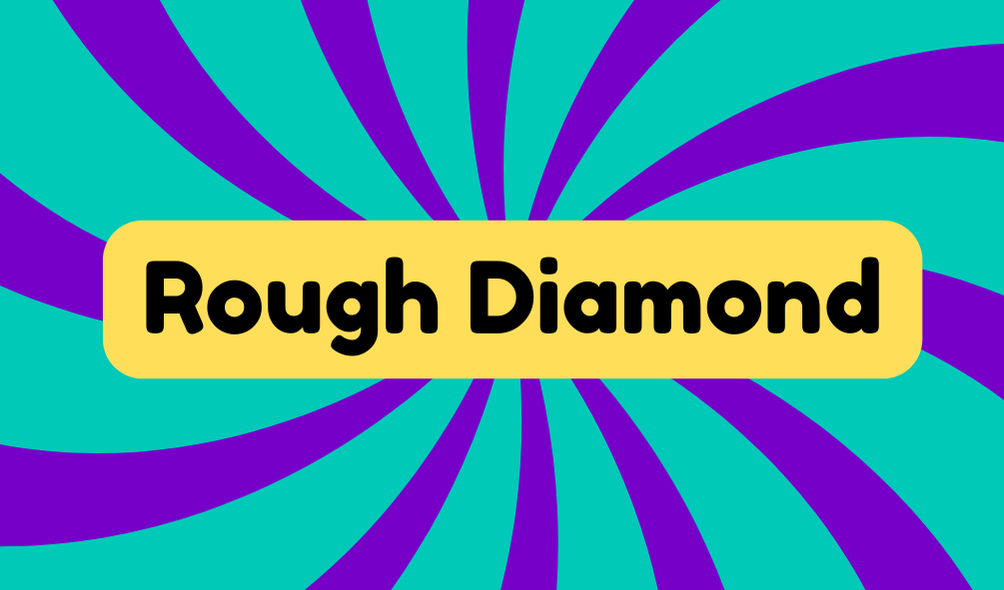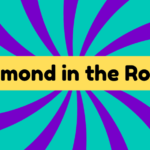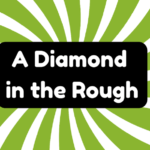The term "rough diamond" describes an individual possessing hidden potential and unrefined qualities. It originates from the gemstone industry, symbolizing unpolished diamonds that often go unnoticed. Historically, these stones were mistaken for ordinary rocks. Examples include people with unique talents who may appear disorganized or unconventional. This phrase encourages a deeper assessment of character, urging society to look beyond surface traits. To fully appreciate these individuals, one's perspective on hidden qualities must expand, revealing even more nuanced insights.
Synonyms
Synonyms for "rough diamond" can help illuminate the concept of someone who embodies potential beneath a rough exterior. In the domain of synonyms exploration, one can consider terms such as:
- Hidden gem
- Unpolished talent
- Character in need of refinement
- Raw potential
These expressions utilize figurative language to highlight the stark contrast between a person's outward demeanor and their inner worth. By recognizing these synonyms, a deeper understanding of this nuanced characterization emerges. Ultimately, it encourages readers to look beyond superficial judgments, fostering a more realistic perspective on individuals who may possess exceptional but concealed qualities.
Example of Sentences
The phrase "rough diamond" often finds its way into everyday conversation, yet many might not fully grasp its significance. To illustrate the concept, consider the following examples:
- Sarah exhibits unpolished potential; her creative ideas spark innovation despite her awkward delivery.
- While Jake appears disorganized, his hidden qualities reveal a natural leadership ability.
- Emma may not adhere to social norms, yet her loyalty shines through like a diamond.
- Despite Tom's lack of formal education, he proves to be a rough diamond, brimming with insights.
These sentences emphasize that true value often lies beneath the surface. Recognizing such traits can foster appreciation for individuality.
Origin
Recognizing a "rough diamond" often requires an understanding of its origins, which are deeply rooted in the world of gemstones. Historically, this term reflects the unpolished appearance of newly mined diamonds, often mistaken for mere pebbles. Its cultural significance lies in its metaphorical application to individuals who, despite possessing exceptional qualities, may seem unsophisticated or coarse. The phrase, first recorded in John Fletcher's "A Wife for a Month" (1624), critiques societal tendencies to overlook hidden potential. A rough diamond serves as a reminder to look beyond superficial manners, recognizing the true value that lies beneath the surface.
Collocations
Collocations related to the term "rough diamond" reveal how the phrase is commonly used in various contexts. These combinations illustrate the term's versatility and the nuances in its usage in conversations. For a clearer understanding, consider the following:
- Recognizing a rough diamond.
- Discovering hidden talents of a rough diamond.
- Nurturing the qualities of a rough diamond.
- Embracing the potential of a rough diamond.
Such collocations highlight the complexity of human behavior, and they serve as a reminder that true value often lies beneath an unrefined exterior. Acknowledging these variations fosters deeper comprehension of character, intent, and potential.
How to Use in Everyday Language
Using the term "rough diamond" in everyday language can illuminate a person's character and potential, yet it requires careful consideration of context. In everyday conversations, referring to someone as a rough diamond can signal appreciation for hidden qualities, but it may also imply a lack of refinement. In workplace interactions, such descriptions can motivate others to look beyond superficial judgments. However, caution is essential; labeling someone incorrectly could diminish their worth. Ultimately, the phrase invites a deeper exploration of individuals, urging people to recognize talent and integrity often obscured by unpolished exteriors, if used thoughtfully.
Why Is It Still Relevant Today?
Why is the concept of a "rough diamond" still relevant in contemporary society? This notion persists as individuals seek authenticity, embracing personal growth amid changing cultural perceptions. The juxtaposition of unrefined character and potential resonates in various contexts, challenging others to recognize value beyond surface traits.
| Aspects | Implications |
|---|---|
| Character Development | Promotes self-awareness |
| Cultural Awareness | Vastly enhances empathy |
| Inner Value | Encourages deeper connections |
Ultimately, acknowledging rough diamonds fosters a more inclusive environment, enabling society to celebrate hidden talents and nurture unpolished qualities that may lead to extraordinary achievements.







